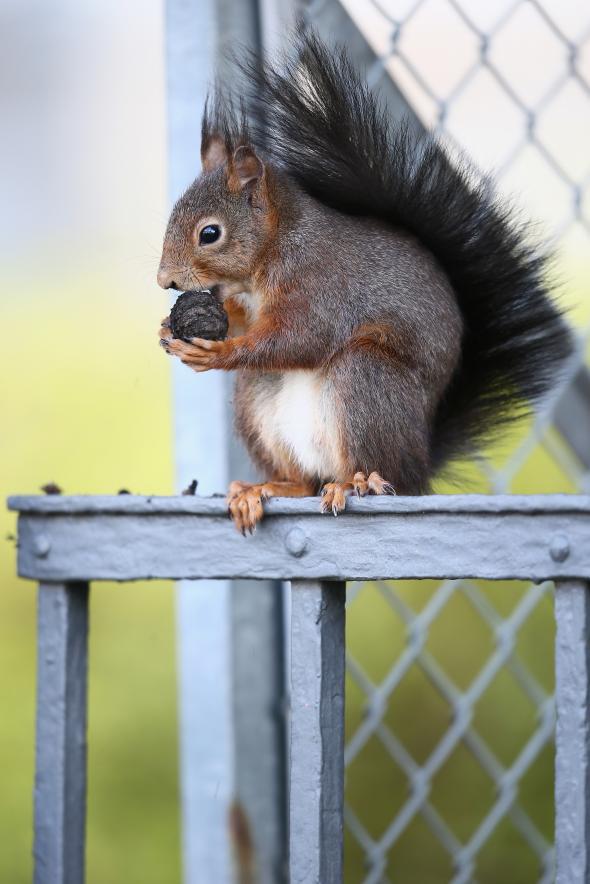If you listen in on some of the grim conversations that circulate in Washington, D.C., you might think that our technological infrastructure is perpetually at risk. That’s the message in much of the handwringing about cyberwar—particularly when it comes to fears about terrorists using an electromagnetic pulse to knock out the power grid. The underlying assumption here is that our modern way of life is fundamentally fragile, and that the smallest thing could destroy the world as we know it. While that’s true up to a point, the real threat probably isn’t nefarious foreign powers. No, my friends, the real threat is squirrels.
That, at any rate, is the deadly serious joke behind CyberSquirrel1, a Twitter account and accompanying website that monitor animal disruptions of technological infrastructure. The story it weaves may feature a familiar refrain, especially if you’ve followed incidents like the one where a weasel chewed through a cable in the Large Hadron Collider, temporarily shutting down the massive installation. CyberSquirrel1 mostly records more mundane incidents, though, its feed a steady stream of more conventional villainy:
At core, of course, CyberSquirrel1’s argument is anti-alarmist. A chart on its webpage currently lists 773 known “successful cyber war ops” by squirrels, 355 by birds, 69 by snakes, and dozens by other critters. Meanwhile, it notes, there have been no confirmed attacks by either Russia or China, and only one (the Stuxnet worm) perpetrated by the United States. Following these stories provides an important reminder of just how common animal-related disruptions are—and just how easy it is to recover from most of them.
That doesn’t mean we don’t have anything to worry about, of course: Writing in the voice of the eponymous Cyber Squirrel itself in a Foreign Policy editorial, the people behind the account observe, “The cybersecurity of the U.S. electrical grid is absolutely pitiful.” But as that malignant creature also adds, we’d likely bounce back quickly from even the most sophisticated virtual attacks against it. In that sense, squirrels and their chittering kin probably do present the greatest threat. “If you really want to stop the ongoing, constant attacks on the U.S. electrical grid, there’s an easy way: call Orkin,” Cyber Squirrel writes in Foreign Policy.
Not everyone agrees, of course. Rachel E. Gross has previously argued in the pages of Slate that squirrels should be our national animal, praising for them for the very curiosity that ends up getting them electrocuted. Gross, now a science editor with the Smithsonian, for comment about the supposed menace of her beloved rodents, said in an email:
Do not blame these innocent creatures for our own technological dysfunction. Commend them for their tenacity and resourcefulness, which have made them so remarkably effective at obtaining food and propagating their species. Do not count the power lines disrupted: appreciate all of the power lines successfully avoided. My fellow Americans, join me in applauding squirrels for doing what so many of their brethren could not: managing to eke out an existence in the techno-wasteland and, in most cases, to live peaceably and adorably alongside us.
There’s something to that, sure. But we’ll be keeping an eye on CyberSquirrel1, just in case.
